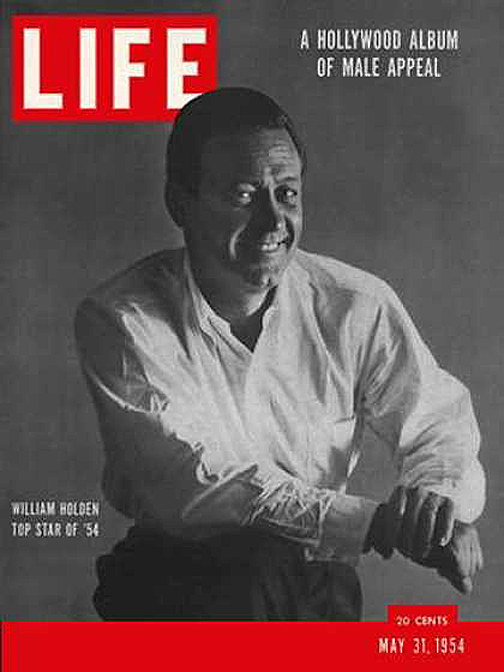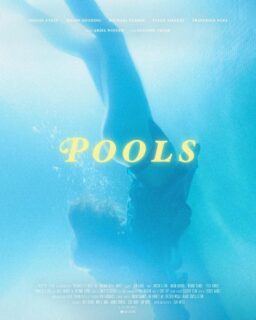After the film festival thing, William Holden said, “I flew back to the States on the Concorde. There was this guy sitting next to me who pulled out a pocket calculator, and so I asked him to figure out something for me. If I’d covered 16,486 miles in 73 hours, I said, how many miles an hour was my body averaging?”
Holden lit a cigarette. “The answer,” he said, “was something like 253.7 miles an hour. If that’s a ballpark figure, it’s close enough.”
He was tired. I was tired. Life, which is filled with coincidences, had just dealt us, another one: We’d both just flown from the Cannes Film Festival to Chicago, and were conducting an interview over coffee in the Whitehall Hotel when we could just as easily have been surveying the yacht harbor at Cannes.
Holden had been in Cannes for the world premiere of Billy Wilder‘s “Fedora,” his newest movie. Now, he was in Chicago for the opening of “Damien: Omen II,” which was shot here last summer. Soon, he would be back home in Kenya, surveying wild game, and that was obviously where, at this moment, he preferred to be.
“Oh, I liked working in Chicago,” he said. “It’s a lovely city. It’s not like being in a tented camp. When we were making ‘The Bridge on the River Kwai,’ it was like being back in the Air Force again.”
There’s a famous story, I said, that when you made “Kwai” you arranged to be paid over a period of years, to cut the tax bite. And that the movie made so much money that you’ll still be collecting in the year 2001.
Holden smiled. “It seemed like a good idea at the time,” he said, “and everybody’s always bringing it up. But what I didn’t figure on was 10 percent for the agent, and the government wants 70 percent, and by the time I split the difference with an ex-wife, there’s not much left. Still… it makes a good story.”
We sipped our coffee and thought about what a good story it made. “Fedora,” I said, is your fourth movie with Billy Wilder, after “Sunset Boulevard,” “Sabrina” and “Stalag 17.” Do you just sort of automatically say yes when Wilder calls?
“Well,” he said, “four times I have. With this movie, I wonder how the public will respond. I no longer have the slightest notion of what will or will not be commercial. With ‘Network,’ for example, I thought it had no commercial potential at all, and it made millions and millions of dollars. I only wanted to make it because of the other people involved. It sounded interesting…”
It’s kind of a tribute to you, I said, that Beatrice Straight won an Academy Award for her performance as your character’s wife, and she was only in one scene. It took some good acting on your part to make that scene work so well…
“And Ned Beatty was nominated for the same movie, and only did two days’ work,” Holden said. “The Academy Awards are a funny thing. Apart from winning for ‘Stalag 17,’ I’ve been the bird in a lot of badminton games where other people won.”
What about people like George C. Scott, who say they don’t want the Oscar?
“The nomination is an honor. Accepting it only takes a little common, ordinary decency.”
More coffee. That was a great moment on this year’s Oscar show, I said, when you and Barbara Stanwyck were co-presenters and you thanked her for making your entire career possible.
“I send the lady flowers every April 1,” Holden said, “and she always sends back a little note saying that now she knows spring is here. She did make my career possible. I was under contract to Paramount, and they loaned me out to Columbia for ‘Golden Boy.’ The movie was a pretty difficult assignment. I had to be an actor, a boxer and a violinist, and I didn’t know that much about any one of the three.
“When I finished work at night, I’d take an hour and a half of violin instruction, and then I’d have a light sandwich of some sort, and then another hour and a half’s workout in the gym, and then there was the dialog coach. I was putting in an 18 or 19-hour day. You keep that up for six or seven weeks, you get exhausted. And I know for a fact that Barbara Stanwyck went to the front office and asked them to ease up. She went to bat for me in 1938 or I wouldn’t be here today. So once a year I send her flowers, and a note saying I’ll never forget her generosity.”
Holden lit another cigarette. I asked him why he thought supernatural horror movies like “Damien: Omen II” were so hot just now.
“It’s strictly a matter of entertainment,” he said. “People like to be scared or thrilled, with an element of quasi-religion thrown in. It’s sort of self-titillating to allow yourself to be scared about something for a moment. ‘The Omen‘, made a mint, and so they thought they’d do a sequel, and I agreed to do it because I’d never made a horror movie before and the script looked interesting. It’s not just a quickie sequel; a lot of money and effort went into it. With the original movie, for example, everybody remembers that scene where the character is decapitated by the sheet of plate glass. They had to top that, I guess, and so in ‘Damien’ you have the elevator cable slicing the guy in two. It makes ‘The Wild Bunch’ look like child’s play.”
You got a lot of criticism, I said, for appearing in “The Wild Bunch,” which everyone said glorified violence. At the world premiere in the Bahamas, Rex Reed stood up at the press conference and said he had only one question: Why was this film made?
“Oh, God, I remember that,” Holden said. “I’d only arrived the night before, after finishing a picture in France, and I was plain exhausted. When I heard that question I wanted to get back on the plane. But ‘The Wild Bunch’ was movie violence — people know it’s fake blood and special effects. I’ll be a sonofabitch if a movie like that even touches the sort of violence you see on the TV news, from Beirut or Zaire.”
More coffee for both of us, and then I asked Holden about the Cannes premiere of “Fedora,” which is about an apparently ageless Garbo-type actress.
“Well, nobody walked out,” he said. “It’s a very stylized film, very mannered… it could have been made in 1952 and just tucked away. It may even be a big hit; who knows what the young people will go for these days? For Wilder, it’s sort of a return to the story of ‘Sunset Boulevard,’ with the actress who never wants to give up.”
One of the things that always bothered me about “Sunset Boulevard,” I said, was that the movie is narrated by the character you play — and the first shot of the movie shows your character floating dead in a swimming pool. How could a dead man narrate a story?
“You have no idea,” Holden said, “how often people ask that question. The fact is that Billy Wilder’s original screenplay did account for the narrator, but his account was so macabre that the studio cut it out. There are a lot of Wilder movies with seven or eight minutes left out because the studio was afraid people would be offended. The original cut of ‘Sunset Boulevard’ opened in a morgue, and my character’s body was lying there, and there was this business of the dead people still being able to communicate with each other. And the narration was supposedly a story told by my character to his fellow stiffs in the morgue. Too spooky.”
Weird, I said.
“Pretty weird,” Holden said. A short silence. “But not as weird as flying the Concorde across the Atlantic and arriving an hour and a half before you left.” He lit another cigarette and walked over to see if there was still some coffee in the pot.












